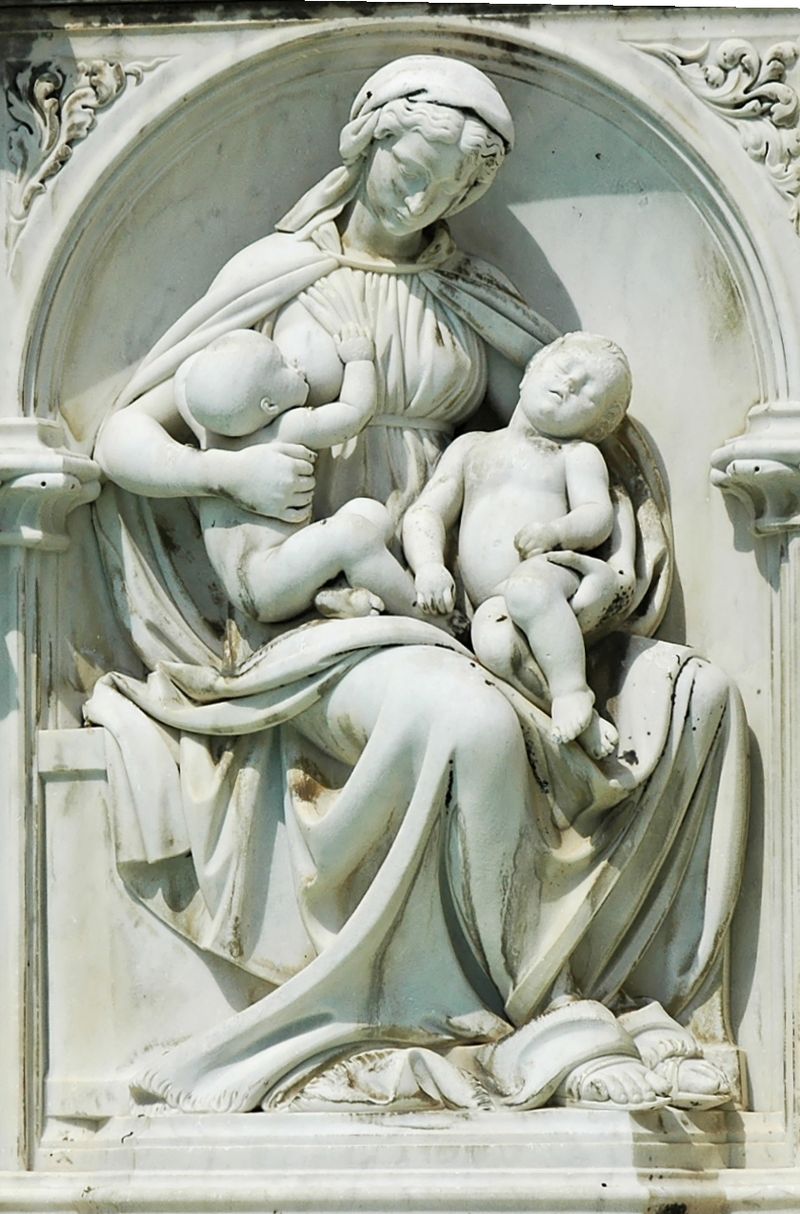
“…the story goes that when the basket in which the infants had been exposed was left high and dry by the receding water, a she-wolf, coming down from the neighboring hills to quench her thirst, heard the children crying and made her way to where they were. She offered them her teats to suck and treated them with such gentleness that Faustulus, the king’s herdsman, found her licking them with her tongue. Faustulus took them to his hut and gave them to his wife Larentia to nurse. Some think that the origin of this fable was the fact that Larentia was a common whore and was called Wolf by the shepherds” — Livy, from The History of Rome: The Beginning (Remus and Romulus)
I have heard the tale of Remus and Romulus before – it was actually one of the first pieces of literature I ever studied, around fourth grade – but I have never heard or considered the bit about Larentia being a common whore. I am reading the tale completely differently now, perhaps as an allegory for the culture’s treatment of “The Whore” archetype.
The wolf is attentive, nurturing – she hears the babies crying from up in the hills, and seeks them out. She treats the children with “such gentleness.” How positively unexpected, as so many narratives across every culture – from fairy tales to modern films – posit wolves as villains. There is a definite air of Livy trying to redefine a misunderstood character, and I believe the tale critiques this false dichotomy: women are either mothers or whores; nurturing and loving or sinful and corrupt. The whore has no capacity for love, care, gentleness, nurture.
This tale aims to reveal the humanity of the whore – to show that in the end, nothing separates her from Rhea Silvia, the twin’s mother, who wasted away in prison after breaking her forced vow of celibacy. It is as if Livy insists that the boys be nurtured and cared for by a whore – as if to say that Rhea Silva would have been perfectly equipped; that the only barrier between her and her children was the harsh patriarchal judgement of her sexuality; that if she couldn’t do it, another “whore” could.
How radical.